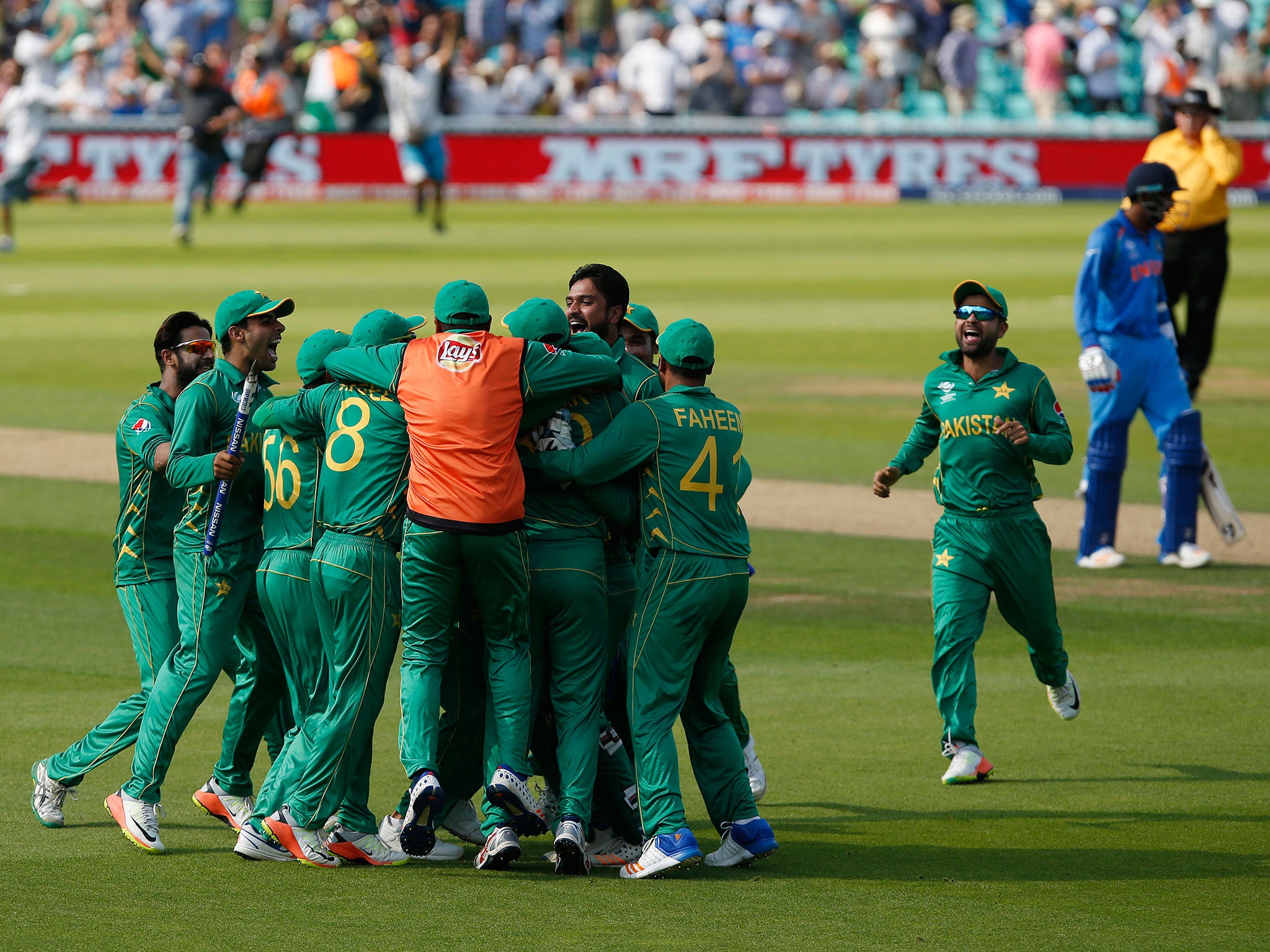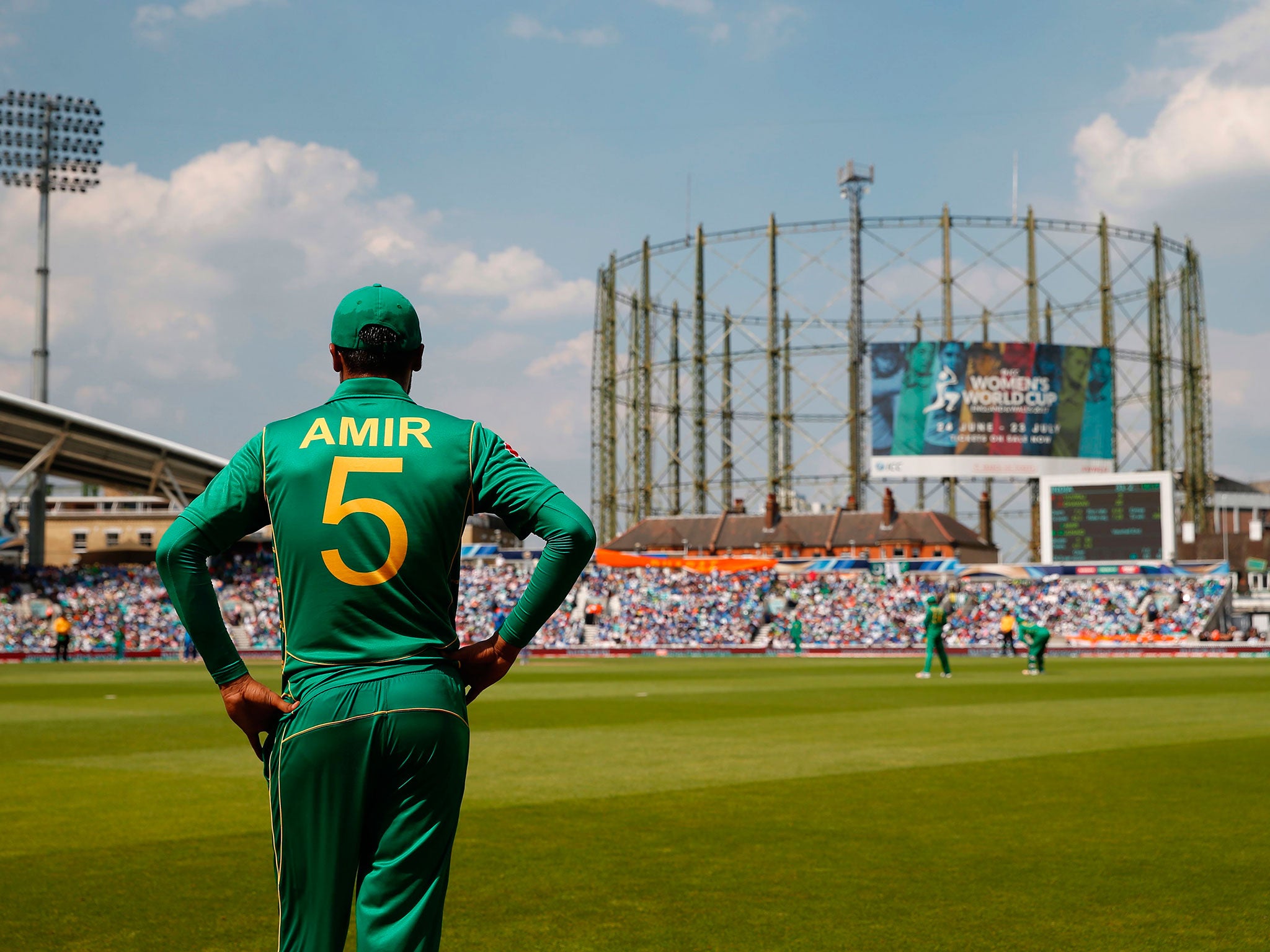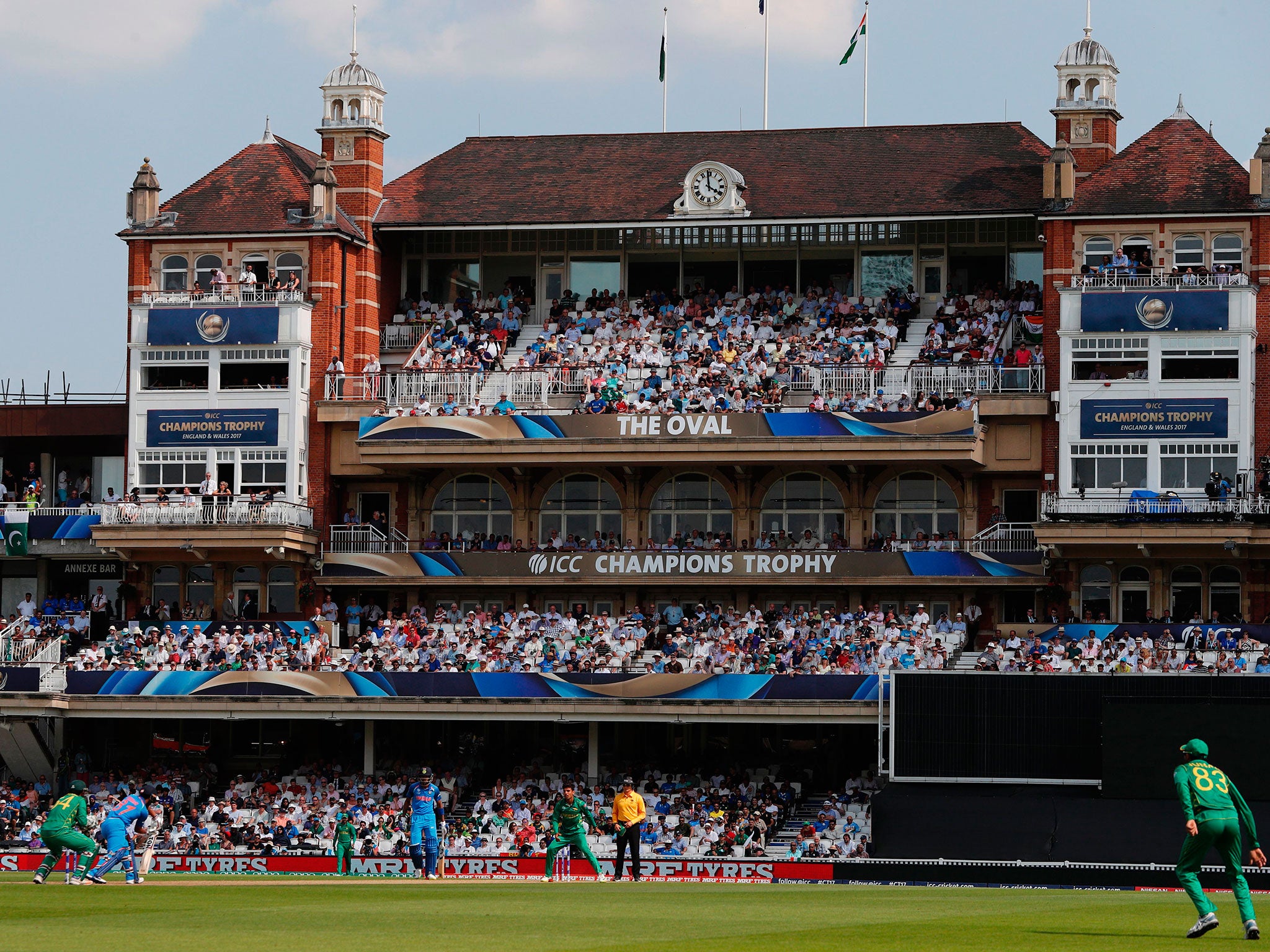Pakistan upset the odds to topple rivals India and claim first-ever Champions Trophy title
A fortnight ago, Pakistan were a ragtag cricket team. Today, Sarfraz Ahmed's men powered their way past their fierce rivals to win by 180 runs and lift the Champions Trophy

Your support helps us to tell the story
From reproductive rights to climate change to Big Tech, The Independent is on the ground when the story is developing. Whether it's investigating the financials of Elon Musk's pro-Trump PAC or producing our latest documentary, 'The A Word', which shines a light on the American women fighting for reproductive rights, we know how important it is to parse out the facts from the messaging.
At such a critical moment in US history, we need reporters on the ground. Your donation allows us to keep sending journalists to speak to both sides of the story.
The Independent is trusted by Americans across the entire political spectrum. And unlike many other quality news outlets, we choose not to lock Americans out of our reporting and analysis with paywalls. We believe quality journalism should be available to everyone, paid for by those who can afford it.
Your support makes all the difference.Twenty-five years after Imran Khan’s cornered tigers overcame a shambolic start to win the 1992 World Cup, Pakistan completed a beguiling sequel by toppling India in the Champions Trophy final at the Oval.
A fortnight ago, Pakistan were a ragtag cricket team. Two squad members were suspended for alleged corruption earlier in the year. Another, Umar Akmal, was sent home from England after failing multiple fitness tests. And then came their crushing by India a fortnight ago, a performance of such ineptitude that it made their ranking of eighth in the world seem generous.
Such chaos, it turned out, was merely the prelude to a Pakistani cricket tale for the ages. They are not merely a paradox and contradiction; they are plain absurd, the world’s most unfathomable sports team.
And yet, amid all the bedlam it seemed entirely appropriate that this victory was rooted in intoxicating bowling from Mohammad Amir. Seven years after his no-balls at Lords, and a few miles south, Amir produced the most mesmerising bowling spell of the tournament.

He begun with two away-swingers, which elicited an inside edge from Rohit Sharma and then a calm leave. The third looked identical, and Sharma shaped to do the same, only to be deceived by vicious late inswing.
In Amir’s next over came two deliveries that encapsulated the very essence of Pakistan. First, the despair at an act of self-harm: Amir managed to induce an edge from Virat Kohli with a delivery slanted across him; at first slip Azhar Ali spilled a routine catch, which bounced from his hands to his shoulder and then, agonisingly, onto the floor. Then, the ecstasy: Kohli attempted to flick Amir’s next delivery to the legside, as if to reassert his own superiority, and succeeded only in getting a leading edge to point where, this time, the catch was held cleanly. Amir leapt up and dived down on his knees like a footballer celebrating a goal: a moment of brilliance and catharsis all rolled into one. And India, who had lost a solitary wicket in the first ten overs across their first four matches of the tournament, had suddenly lost two within 2.4 overs, their prospects of overhauling Pakistan’s 338-4 gravely imperilled.
Amir continued in a bowling spell of beguiling gumption and chicanery, locating swing in a tournament where it has been elusive. Yet, thrillingly, it was a different skill that snared Shikhar Dhawan: the ball did not swing, but was instead a cross-seamer that imbued the ball with deceptive extra bounce, so it reared up and kissed Dhawan’s outside edge as he was shaping to drive. Amir had produced the tournament’s defining spell.

Yet what came next was scarcely less intoxicating. In his first over Shadab Khan, an 18-year-old legspinner in keeping with another staple of Pakistan glories past - the precious teenager - produced a beautifully flighted leg break which trapped Yuvraj Singh in front of his stumps. Khan’s vigorous appeal was rejected, but he implored his captain to use a review to challenge the decision: wisely, it transpired. Three balls later MS Dhoni pulled Hasan Ali, the tournament’s stand-out bowler, to square leg, where Imad Wasim took a sharp catch with wonderfully nonchalant ease. Suddenly, world cricket’s batting powerhouse were 54-5.
Pakistan had already defied conventional wisdom once in the match. Cricketing logic dictated that Pakistan’s best chance of winning - maybe even their only one lay in bowling first and restricting India; their odds lengthened when India won the toss and chose to bowl.
It was an entirely rational decision, grounded in the vulnerability of Pakistan’s top order. There was copious evidence of it in the early stages, too. Fakhar Zaman should have been run-out on one.

In the fourth over, Zaman slashed behind. But as he was trudging off the third umpire checked whether Jasprit Bumrah had overstepped; by millimetres, he had. Two balls later, Zaman’s Chinese cut somehow evaded his offstump and ran down to fine leg for four. He approached the rest of his innings like a man on a streak at the roulette table, top-edged hoicks over the keeper interspersed with some majestic clean shot-making.
His partner Azhar Ali was altogether more certain. Captain of the ODI team until January, Azhar was sacked and dropped, deemed too one-paced for the format. Yet he has worked indefatigably to expand his range of shots, to earn a recall. Some of his strokes, especially a straight pull just to the right of Bumrah evidenced his admirable thirst for self-improvement.
As the two combined for a second consecutive century stand - the first time that Pakistan have managed as much for 14 years in ODI cricket - India became rattled. They bowled seven wides within the first 13 overs, missed five possible run-outs within the first 20 - direct hits would have dismissed the batsmen on at least three occasions. Yuvraj egregiously allowed a ball through his legs for four.

This being Pakistan, a serene start gave way to a self-inflicted wound: Azhar was run-out when Zaman failed to respond to his call. Yet Azhar could hardly stay aggrieved at Zaman for long, while he was looting 33 runs from the 26th and 27th overs combined, including some thunderous blows down the ground.
The four to bring up his century, swept from outside offstump while Zaman also fell over, was entirely in keeping with the knock, a fusion of the astounding and slightly shambolic. His fortune was deserved indeed; having only made his debut in the second game of the tournament, Zaman has reinvigorated Pakistan’s entire approach. Babar Azam and Mohammad Hafeez channelled his spirit as Pakistan ended on 338-4, a total unimaginable to anyone who witnessed the dour batting that led to their slump to eighth in the world before the tournament.
By the end of Pakistan’s innings, one contrast embodied the extraordinary and almost unfathomable metamorphosis of this cricket team. Up to losing their seventh wicket against Sri Lanka, Pakistan’s perilous batting had scored 445 runs while losing 20 wickets in the tournament, and scoring at an anaemic 4.9 an over. Thereafter, they scored 627 runs while losing just six, scoring at six an over.

Once Amir’s captivating new ball spell had been backed up by the most dangerous attack in the tournament, all that was left was Pakistan’s moment of final victory.
It was secured by Hasan Ali, who has gone from unheralded to electric in the space of 10 days. His bounce elicited Bumrah’s top edge; the Pakistanis in the crowd had a few moments of delicious anticipation; the ball landed reassuringly in Sarfraz Ahmed’s gloves. Pakistan were champions, inviting pandemonium, disbelieving hugs and a mad scramble among the players for stumps.
Whether the Champions Trophy will come again remains unclear. But if it is scrapped, Pakistan deserve to keep the trophy for ever.
Join our commenting forum
Join thought-provoking conversations, follow other Independent readers and see their replies
Comments